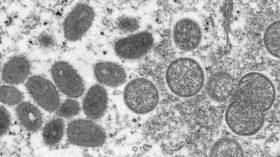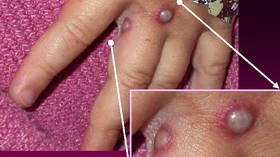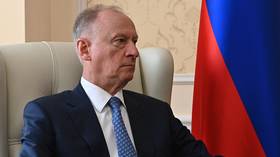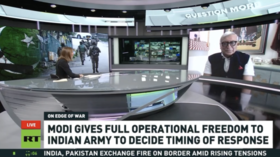WHO sets out response to monkeypox

Informing the public about monkeypox, isolating the infected, and organizing effective contact tracing and monitoring are the best ways to contain the spread of the virus, the World Health Organization’s top official in Europe said on Tuesday.
The European continent “remains at the epicenter of the largest and most geographically widespread monkeypox outbreak ever reported outside of endemic areas in Western and Central Africa,” Hans Kluge, WHO regional director for Europe, said in a statement.
The WHO has registered more than 550 cases of the virus in 30 countries, with most instances outside Africa being found in Europe. The virus can leave distinctive pustules on the skin but rarely results in fatalities.
Investigations by the UN health body have shown the monkeypox outbreak was “certainly underway as early as mid-April” on the continent, Kluge said, adding that new infections are being confirmed “every day.”
The disease mainly spreads among “men who have sex with men,” with many of the infected being those who had multiple partners and attended large events or parties. But that doesn’t mean people outside the gay and bisexual communities are not at risk, he warned.
The WHO official assured that “an effective response to monkeypox will not require the same extensive population measures as we needed for Covid-19 because the virus does not spread in the same way.”
He was referring to lockdowns and large-scale vaccination campaigns introduced in many countries to stem the spread of the coronavirus over the past two years.
A reduction in monkeypox cases should be achieved through “clear communication, community-led action, case isolation during the infectious period, and effective contact tracing and monitoring,” he said.
The risk groups, the general public and doctors should be better informed about the virus, while medical facilities should be better equipped to swiftly diagnose the disease, Kluge suggested.
Effective tracing and motoring of those who have been in contact with infected people, for 21 days, will also be paramount. “While the quarantining of contacts may not be necessary, twice-daily temperature checks and self-monitoring are critical,” he said.
The WHO official stressed that medical countermeasures should be fairly distributed between countries, based on the scale of the outbreaks they face. “We cannot allow ugly competition for constrained resources to mirror the early days of the Covid-19 pandemic.”
However, even if this strategy is implemented, “we do not yet know if we will be able to contain its spread completely,” Kluge admitted.















